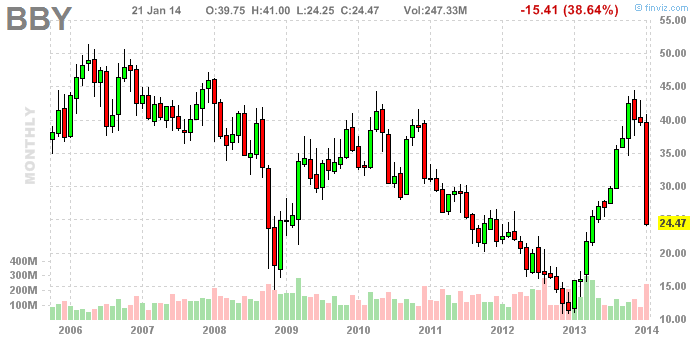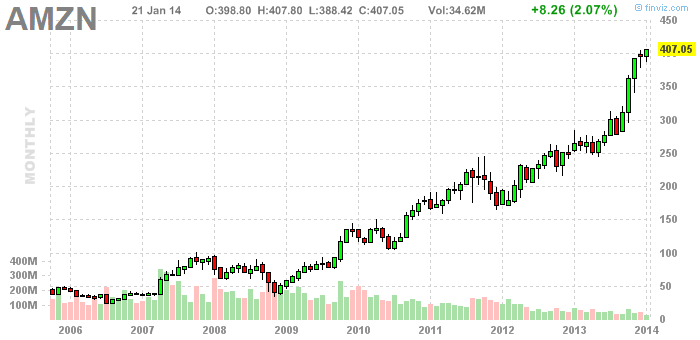Long-term investing requires investors to understand the nature of innovation. No industry is safe from it, incumbents are constantly battling it and new business survival depends on it. The previous post briefly mentioned how Circuit City (filed for bankruptcy in 2009) was disrupted by Best Buy and was disrupted by Amazon. And, as it turns out, Amazon is now faced with similar disruption from Alibaba.
Before we discuss Alibaba, here’s the contrast between Best Buy and Amazon stock prices:


The business models of Amazon and Alibaba are different:
- Amazon has low margins (e-commerce), Alibaba has no margins (market-place monetized by ads)
- Amazon’s openly searchable and indexed website vs. Alibaba’s walled garden
- Amazon needs to make a sale in order to make money, Alibaba only needs visitors to search for something and browse through its pages
But if Alibaba can gain a foothold in the US, then it has to potential to impact Amazon’s economies of scale.
Juan Pablo Vazquez Sampere has this to say on the HBR Blog:
There are two possible ways in which Amazon can fight back:
- Amazon doesn’t react to this new challenge and continues focusing on its most profitable customers
- Amazon creates an independent business unit using Alibaba’s revenue model
Here’s the dilemma faced by investors:
- e-commerce in the US is still a growth industry
- e-commerce is still disrupting brick-and-mortar businesses
- Amazon is still a dominant force in the e-commerce space in the US and is aggressively expanding overseas
- Amazon is likely to lose money on low-margin businesses if it chooses to defend them against Alibaba, putting further pressure on its bottom-line
- If Amazon decides to cede low-margin businesses and instead focus on extending the brick-and-mortar disruption that it had created, then it allows Alibaba to get a toe-hold. This is how most disruptive companies got their start
- Both Jeff Bezos and Jack Ma are extremely competent leaders
Should investors hold or fold?
Related articles






Comments are closed, but trackbacks and pingbacks are open.